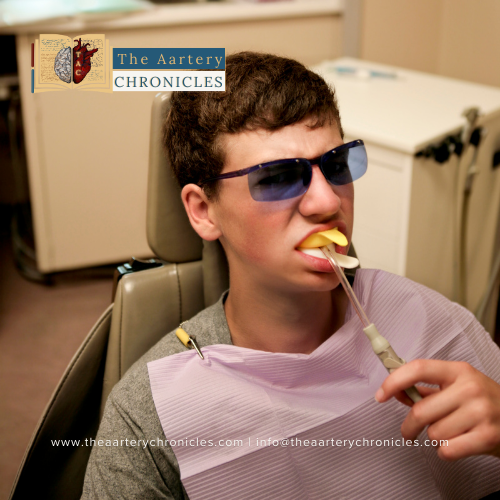Reading Time: 7 minutesAge Gracefully: Rewriting the Rules of Anti-Ageing | Age Gracefully: Rewriting the Rules of Anti-Ageing The process of ageing starts as soon as an individual is born. One of the most inevitable aspects of life is ageing. It is something everyone has to face. Getting older brings about major life changes that one might not always be prepared for. Such changes include transitions in career, loss of loved ones, and most importantly physical and mental health challenges. However, the way one handles and grows from these challenges is the key to graceful ageing. The risk of contracting ailments increases after a certain age. It’s not unusual to struggle with accepting the fact of ageing. The concerns of life are different at the age of 85 than that of 25. Ageing will inevitably cause several physiological changes. Lifestyle choices for healthy ageing: Healthy ageing can be influenced by many factors such as genetics, eating habits, exercise, etc. However, Managing health, living independently, and maintaining the quality of life are achievable. Diet: Having balanced and nutritious eating habits is crucial for health. Chronic health issues such as stroke, diabetes, cardiac disorders, and obesity can be prevented or help diseases from getting worse. It is essential to include: Vegetables and fruits Protein and healthy fats Cereals, whole-grains Vitamin D-fortified dairy products Nuts It is necessary to avoid processed foods and refined sugars. Cutting solid fats and using oils for cooking has proved to be beneficial. Apart from this, the intake of salt has to be minimal to maintain normal levels of blood pressure. Exercising and having an active lifestyle Several studies reveal the association of a sedentary lifestyle with a greater risk of developing chronic health issues and early death. An active lifestyle involves engaging in things that are important to you and are beneficial for your body, spirit, and mind. It is important to practice yoga, go on a walk, or engage in productive activities that give you joy. Hobbies and other social activities can reduce the chance of several health issues, such as dementia, heart disease, stroke, and some types of cancer. Maintain a healthy sleep cycle Physical and mental health is highly influenced by the quality of sleep. It is essential to get quality sleep for healthy skin. A protein linked to Alzheimer’s disease called beta-amyloid is known to accumulate as a result of insufficient sleep. Low rates of obesity, heart disease, and insulin resistance are results of obtaining enough sleep. Getting quality sleep of about seven to eight hours every night can decrease the risk of obesity, inflammation, depression, and cardiac disorders. Taking care of the skin The largest organ of the body is the skin. They say ‘If you love your skin your skin will love you back’. If you take good care of your skin, it will shield your body from the environment, and regulate body temperature. Healthy skin may promote a youthful look. Hydration is important for skin health. The toxins in the body are flushed out which improves texture, gets rid of wrinkles, and gives a natural plump to the skin. It is crucial to wear sunscreen when going out during the day regardless of the weather. Using gentle and antiaging skincare products may be helpful Also, it is recommended to get annual screenings for skin cancer Regulating / Quitting the use of cigarettes and alcohol Numerous studies reveal the association between smoking and alcohol with premature ageing. Smoking can increase the risk of developing various diseases including cancer. Also, the existing respiratory disorders might get worse due to smoking. In the case of alcohol, it is important to limit intake to maintain health and avoid risks. Regular health checkups Health exams and routine doctor appointments are important for healthy ageing. Routine checkups help people lower their chances of developing issues such as high blood pressure and help doctors detect chronic diseases early. Regular medical visitors also reported a higher quality of life and healthy sentiments. Healthy ageing is all about being happy and practising mindfulness when making diet and lifestyle choices. It is common to get anxious over aging challenges so it is best to get in touch with the family doctor regarding any health Concerns. Indulging in hobbies, and surrounding yourself with positive people and loved ones is a must for mental health and overall well-being. Diet: Having balanced and nutritious eating habits is crucial for health. Chronic health issues such as stroke, diabetes, cardiac disorders, and obesity can be prevented or help diseases from getting worse. It is essential to include: Vegetables and fruits Protein and healthy fats Cereals, whole-grains Vitamin D-fortified dairy products Nuts It is necessary to avoid processed foods and refined sugars. Cutting solid fats and using oils for cooking has proved to be beneficial. Apart from this, the intake of salt has to be minimal to maintain normal levels of blood pressure. Exercising and having an active lifestyle Several studies reveal the association of a sedentary lifestyle with a greater risk of developing chronic health issues and early death. An active lifestyle involves engaging in things that are important to you and are beneficial for your body, spirit, and mind. It is important to practice yoga, go on a walk, or engage in productive activities that give you joy. Hobbies and other social activities can reduce the chance of several health issues, such as dementia, heart disease, stroke, and some types of cancer. Maintain a healthy sleep cycle Physical and mental health is highly influenced by the quality of sleep. It is essential to get quality sleep for healthy skin. A protein linked to Alzheimer’s disease called beta-amyloid is known to accumulate as a result of insufficient sleep. Low rates of obesity, heart disease, and insulin resistance are results of obtaining enough sleep. Getting quality sleep of about seven to eight hours every night can decrease the risk of obesity, inflammation, depression, and cardiac disorders. Taking care of the skin The largest organ of the body is









